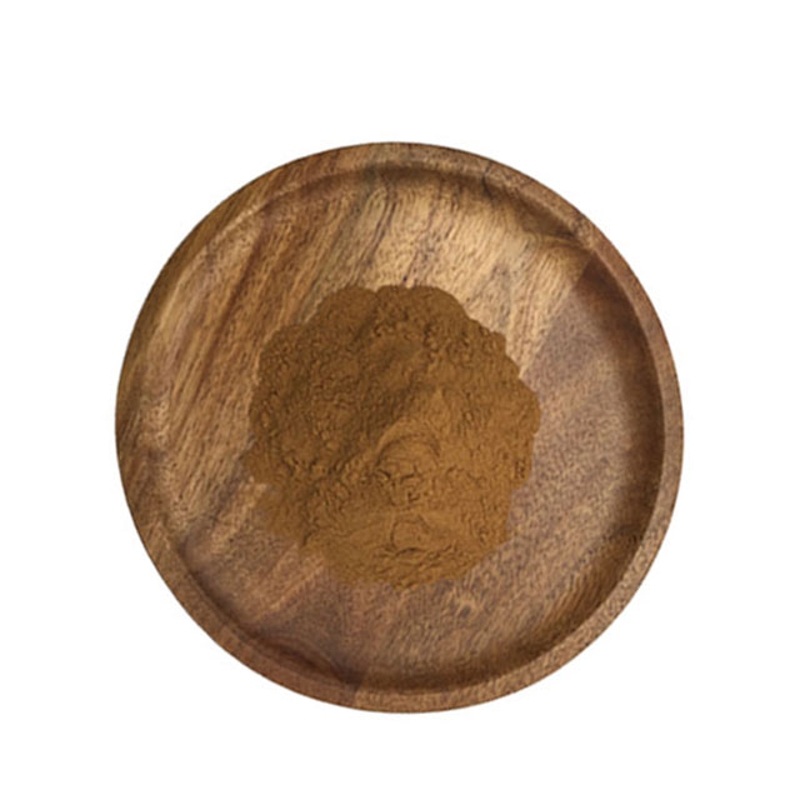-
Categories
-
Pharmaceutical Intermediates
-
Active Pharmaceutical Ingredients
-
Food Additives
- Industrial Coatings
- Agrochemicals
- Dyes and Pigments
- Surfactant
- Flavors and Fragrances
- Chemical Reagents
- Catalyst and Auxiliary
- Natural Products
- Inorganic Chemistry
-
Organic Chemistry
-
Biochemical Engineering
- Analytical Chemistry
- Cosmetic Ingredient
-
Pharmaceutical Intermediates
Promotion
ECHEMI Mall
Wholesale
Weekly Price
Exhibition
News
-
Trade Service
Low-dose aspirin can safely inhibit the recurrence of colorectal polyps larger than 5.
0 mm in FAP patients.
These results suggest that low-dose aspirin has a certain effect on FAP and can be used as an alternative method to prevent FAP colorectal cancer.
The evidence that aspirin prevents CRC has been confirmed by many top studies.
Especially in June last year, a study published in the journal Lancet showed that aspirin used to prevent high-risk groups of CRC with genetic predisposition can reduce the risk of such patients by half, and the effect can be as long as 10-20.
year! Familial adenomatous polyposis (FAP) is an autosomal dominant genetic disease caused by mutations in the colon adenomatous polyposis gene (APC).
Classical FAP is manifested as the presence of 100 or more colorectal adenomatous polyps.
If fully developed, it can reach thousands of colorectal adenomas, and the risk of colorectal cancer (CRC) can be as high as 100%.
Currently, the only established treatment for FAP patients to prevent CRC is colectomy, which greatly reduces the patient’s quality of life.
Therefore, we need an alternative method.
Recently, researchers from Kyoto Prefecture Medical University in Japan conducted a trial to determine the effects of low-dose aspirin and mesalazine on the recurrence of colorectal polyps in FAP patients.
The results were published in Lancet sub-journals.
This is a randomized, double-blind, placebo-controlled, multi-center trial conducted in 11 centers in Japan, using a 2-to-2 factorial design.
Participants aged 16-70 years old with a history of colorectal adenomatous polyps and no history of colectomy were included.
Before the study, the patient had endoscopically removed all colorectal polyps with a diameter of at least 5.
0 mm. The patients were randomly divided into the following four groups: aspirin (100mg/d) + mesalazine (2g/d), aspirin (100mg/d) + placebo, placebo + mesalazine (2g/d), or double Placebo.
Colonoscopy was performed 8 months later.
The primary endpoint is the incidence of colorectal polyps of at least 5.
0 mm at 8 months, evaluated in the intent-to-treat population.
A total of 104 patients were randomly assigned to receive aspirin + placebo (n=52) or mesalazine + placebo (n=52).
Overall, aspirin can reduce the risk of recurrence of colon polyps by 63%.
Of the 52 patients who did not receive aspirin, 26 (50%) had colorectal polyps of at least 5.
0 mm at the 8-month colonoscopy, and of the 50 patients who received any aspirin, 15 (30 %)patient.
At the same time, 21 of the patients who did not receive mesalazine (42%), and of the 52 patients who received mesalazine, this number was 20 (38%).
The risk of relapse in patients receiving mesalazine was 0.
87 (95% CI 0.
38-2.
00), and the difference was not statistically significant.
The most common adverse event was 3 out of 26 patients receiving aspirin plus mesalazine (12%) with grade 1-2 upper gastrointestinal symptoms, and 1 out of 24 patients receiving aspirin plus placebo (4%) Adverse events occurred, and 1 out of 26 patients receiving mesalazine plus placebo (4%) experienced adverse events.
In summary, low-dose aspirin can safely inhibit the recurrence of colorectal polyps larger than 5.
0 mm in FAP patients.
These results suggest that low-dose aspirin has a certain effect on FAP and can be used as an alternative method to prevent FAP colorectal cancer.
Reference: Chemoprevention with low-dose aspirin, mesalazine, or both in patients with familial adenomatous polyposis without previous colectomy (J-FAPP Study IV): a multicentre, double-blind, randomised, two-by-two factorial design trial.
https ://doi.
org/10.
1016/S2468-1253(21)00018-2.
0 mm in FAP patients.
These results suggest that low-dose aspirin has a certain effect on FAP and can be used as an alternative method to prevent FAP colorectal cancer.
The evidence that aspirin prevents CRC has been confirmed by many top studies.
Especially in June last year, a study published in the journal Lancet showed that aspirin used to prevent high-risk groups of CRC with genetic predisposition can reduce the risk of such patients by half, and the effect can be as long as 10-20.
year! Familial adenomatous polyposis (FAP) is an autosomal dominant genetic disease caused by mutations in the colon adenomatous polyposis gene (APC).
Classical FAP is manifested as the presence of 100 or more colorectal adenomatous polyps.
If fully developed, it can reach thousands of colorectal adenomas, and the risk of colorectal cancer (CRC) can be as high as 100%.
Currently, the only established treatment for FAP patients to prevent CRC is colectomy, which greatly reduces the patient’s quality of life.
Therefore, we need an alternative method.
Recently, researchers from Kyoto Prefecture Medical University in Japan conducted a trial to determine the effects of low-dose aspirin and mesalazine on the recurrence of colorectal polyps in FAP patients.
The results were published in Lancet sub-journals.
This is a randomized, double-blind, placebo-controlled, multi-center trial conducted in 11 centers in Japan, using a 2-to-2 factorial design.
Participants aged 16-70 years old with a history of colorectal adenomatous polyps and no history of colectomy were included.
Before the study, the patient had endoscopically removed all colorectal polyps with a diameter of at least 5.
0 mm. The patients were randomly divided into the following four groups: aspirin (100mg/d) + mesalazine (2g/d), aspirin (100mg/d) + placebo, placebo + mesalazine (2g/d), or double Placebo.
Colonoscopy was performed 8 months later.
The primary endpoint is the incidence of colorectal polyps of at least 5.
0 mm at 8 months, evaluated in the intent-to-treat population.
A total of 104 patients were randomly assigned to receive aspirin + placebo (n=52) or mesalazine + placebo (n=52).
Overall, aspirin can reduce the risk of recurrence of colon polyps by 63%.
Of the 52 patients who did not receive aspirin, 26 (50%) had colorectal polyps of at least 5.
0 mm at the 8-month colonoscopy, and of the 50 patients who received any aspirin, 15 (30 %)patient.
At the same time, 21 of the patients who did not receive mesalazine (42%), and of the 52 patients who received mesalazine, this number was 20 (38%).
The risk of relapse in patients receiving mesalazine was 0.
87 (95% CI 0.
38-2.
00), and the difference was not statistically significant.
The most common adverse event was 3 out of 26 patients receiving aspirin plus mesalazine (12%) with grade 1-2 upper gastrointestinal symptoms, and 1 out of 24 patients receiving aspirin plus placebo (4%) Adverse events occurred, and 1 out of 26 patients receiving mesalazine plus placebo (4%) experienced adverse events.
In summary, low-dose aspirin can safely inhibit the recurrence of colorectal polyps larger than 5.
0 mm in FAP patients.
These results suggest that low-dose aspirin has a certain effect on FAP and can be used as an alternative method to prevent FAP colorectal cancer.
Reference: Chemoprevention with low-dose aspirin, mesalazine, or both in patients with familial adenomatous polyposis without previous colectomy (J-FAPP Study IV): a multicentre, double-blind, randomised, two-by-two factorial design trial.
https ://doi.
org/10.
1016/S2468-1253(21)00018-2.







